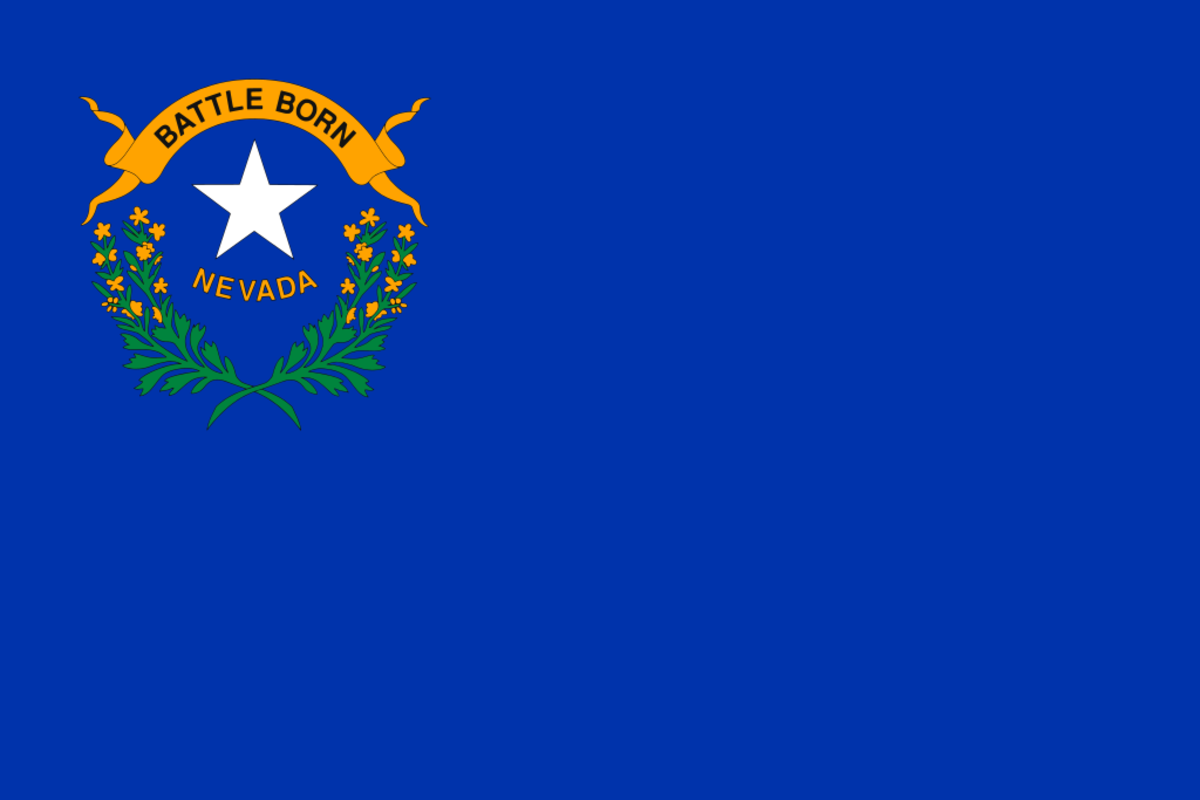Nevada Medical Malpractice Laws

In 2013, while working at a fashion convention in Nevada, model Chantel Giacalone experienced a severe allergic reaction when she consumed an ice cream product that contained peanuts. MedicWest Ambulance, Inc., which responded to the emergency, gave Giacalone an intramuscular shot of epinephrine instead of an intravenous one, which its responders were required to have under Nevada’s medical regulations.
As a result of the intramuscular shot’s ineffectiveness, Giacalone’s condition worsened, resulting in quadriplegia and brain damage caused by the lack of oxygen in her brain. Her family filed a lawsuit against MedicWest for medical malpractice in 2015 and was ultimately awarded $29.5 million in damages in 2021.
Giacalone’s case is just one of many medical malpractice cases that occur throughout the country, including Nevada. According to the National Practitioner Data Bank, the state recorded up to 647 malpractice reports throughout 2022 and within the first three months of 2023. The legal and financial complications caused by these incidents can often leave patients and their families with severe long-term problems in terms of the victim’s health and losses.
This article offers an overview of the state’s medical malpractice laws and provisions to help Nevadans determine their legal options if their loved one suffers harm through a healthcare provider’s negligence. It will also discuss case filing deadlines and recoverable damages.
What Qualifies as Medical Malpractice in Nevada?
Medical malpractice in Nevada is classified as professional negligence. This refers to the failure of a healthcare practitioner or provider to render medical aid within the same standards of reasonable care or knowledge followed by other professionals in the same field. Simply put, malpractice occurs when a patient suffers harm due to a doctor not following the proper guidelines and safety standards set forth by their profession.
Nevada considers medical malpractice to be the same as medical negligence. This differs from other states, where these two legal concepts are defined separately. Nevada consolidated the term “medical malpractice” under professional negligence following its revision and repeal of various statutes related to it in 2015.
Medical malpractice cases often stem from the following:
Surgical and anesthetic mistakes.
Medication errors.
Birth injuries.
Misdiagnosed conditions or illnesses.
Premature discharges.
Failure to correctly interpret medical records.
Failure to obtain the informed consent of a patient regarding their treatment.
Who Can You Sue for Medical Malpractice in Nevada?
A victim of medical malpractice in Nevada can sue the parties directly involved in the harm they suffered. This often includes the doctor or physician administering medical care at the time of their injury. Other potential parties include:
The nurses who were assisting the defendant during the incident.
Pharmacists or pharmaceutical companies, if a drug with insufficient instructions or dangerous side effects caused the injury.
Manufacturers, if a defective device or product caused the injury.
Nurses in Nevada can be sued for medical malpractice for other reasons, such as failing to properly monitor a patient or report a patient’s condition to a doctor. Furthermore, they can be charged for failing to use medical equipment or administer inoculations properly.
However, the Supreme Court of Nevada stated in 2020 that medication mistakes committed by nurses are only considered ordinary negligence. These errors will only be classified as professional negligence if a nurse who administers the wrong medication to a patient also fails to monitor the latter’s condition afterward.
The Supreme Court also ruled that a hospital in Nevada can be sued alongside one of its doctors in a malpractice case. This is an exception to the general rule of vicarious liability and falls instead under the doctrine of ostensible agency, where a hospital can be held liable for any negligence or misconduct committed by its chosen doctors.
Exemptions
Sovereign Immunity in Nevada
While Nevada grants sovereign immunity to government agencies and employees in certain legal scenarios, the state’s Tort Claims Act waives this immunity for those liable for their own torts. This allows victims of medical malpractice to take legal action against public hospitals and their staff members.
However, plaintiffs must note the strict requirements of filing a claim against the state. For instance, when initiating a claim, a plaintiff must notify the agency involved within a specific time. Furthermore, the total damages they can recover in such a claim are capped at certain amounts. These limitations will be specified later on in the article.
Nevada’s Good Samaritan Law
Another factor affecting medical malpractice cases in Nevada is the state’s Good Samaritan law. Under this statute, individuals are protected from civil liability for administering emergency medical treatment in good faith during an accident or unforeseen event not caused by them. This protection extends to volunteer ambulance drivers and their assistants, as well as those who are part of a search and rescue effort under the supervision of a county sheriff.
On the other hand, the Good Samaritan law does not apply to instances where a person acts with gross negligence that worsens a victim’s injuries. In addition, it does not protect people if they had a duty to provide medical aid in the first place. As such, paramedics and other first responders are not immune from liability.
Medical Malpractice Liability Insurance Requirements
Unlike other states, Nevada does not have a law requiring healthcare providers to have medical malpractice insurance, nor does it impose mandatory minimum requirements for those who wish to obtain coverage. However, having medical malpractice insurance still helps providers cover legal costs and damages if they end up inflicting harm to a patient through their negligence.
Generally, the ideal medical malpractice insurance coverage is $1 million for each claim and $3 million for each occurrence. Still, the amount of coverage a healthcare provider should get often depends on their practice. For instance, surgeons are more likely to obtain higher coverage than ordinary doctors due to the complex nature of their practice and the inherent risks involved.
However, certain facilities in the state require physicians to obtain medical malpractice insurance before they are given admitting privileges. Providers can speak with the facilities they work at to learn the recommended minimum amounts for medical malpractice insurance and whether or not they require coverage.
What Is the Statute of Limitations in Nevada for Medical Malpractice Cases?
Under state legislature, medical malpractice victims in Nevada are given a maximum of three years to file a claim or lawsuit against liable parties. This deadline will begin counting down from the date when the alleged malpractice occurred. If a plaintiff attempts to file after this deadline has passed, their case will most likely be dismissed by the court.
Victims who wish to pursue a claim or lawsuit against government hospitals or their employees must follow an additional provision as defined by the Nevada Tort Claims Act. Specifically, they must submit a written notice to the government agency involved in their case. This notice must be filed within 180 days from the date of the malpractice in question. It must detail the incident, the nature of the victim’s injury, and the damages they seek to recover.
If a victim of medical malpractice dies of their injuries, their dependents or representatives may file a wrongful death claim on their behalf within a maximum of two years. Unlike in an ordinary malpractice claim, this deadline begins counting down from the date of the victim’s death.
Potential Exceptions to the Statute of Limitations
The Discovery Rule
Nevada follows the discovery rule for medical malpractice cases where a victim does not discover an injury or complication until a later time. This can happen when a new illness caused by a treatment does not make itself apparent until it begins affecting the victim’s overall health. Another scenario where it can happen is when a foreign object is negligently left within the victim’s body following a surgical procedure.
For these cases, the statute of limitations lasts one year, and it will begin counting down from when the victim discovered or should have become reasonably aware of the underlying injury.
Cases Involving Children
Nevada's three-year statute of limitations applies in most medical malpractice cases where the victim is a child. However, the statute will not start counting down until after the child’s 10th birthday if the malpractice resulted in brain damage or a birth defect.
Concealment
Nevada also has an exception for cases where the defendant takes steps to conceal their negligence, whether intentionally or otherwise. In these scenarios, the statute of limitations will be “tolled” or paused, and the defendant’s period of concealment will not be counted as part of the three-year deadline’s countdown.
What Do You Need to Prove in a Nevada Medical Malpractice Case?
When taking legal action against a healthcare provider in a medical malpractice case, a plaintiff must first prove the following legal factors:
The defendant owed the victim a duty of reasonable care by following the same standards set by their profession.
The defendant breached that duty of care through their negligence.
The victim suffered an injury that was directly caused by the defendant’s breach of duty.
The victim suffered losses as a result of their injury.
Furthermore, when filing a complaint for malpractice, a plaintiff must provide an affidavit of merit that identifies those involved in the case and enumerates their negligence using “simple, concise, and direct terms.” The allegations and details in the affidavit must also be supported by a qualified medical expert whose practice falls within the same or related area as the defendants.
If a plaintiff fails to submit an affidavit of merit, their case will be dismissed. However, they will still be given the chance to submit it and proceed with their case normally.
Other statutory requirements for a medical malpractice complaint in Nevada include:
Expert testimonies, particularly from those who work in the same field as the defendant.
Excerpts from established medical texts.
The regulations of the hospital or facility where the alleged malpractice occurred.
On the other hand, the requirements above are not mandated if a case involves any of the following:
A foreign object other than a prosthetic or medication that was left inside a victim’s body.
A surgical procedure that was carried out on the wrong body part.
A fire or explosion caused by a substance used during treatment while said treatment was being administered.
A burn that was unintentionally caused by radiation, heat, or chemicals during a victim’s treatment.
An injury to a body part that is not directly affected by a treatment.
How Much Can You Sue for Medical Malpractice in Nevada?
The average amount of damages that medical malpractice victims in Nevada can recover often depends on the nature of their injury and the factors involved in their case. According to the National Practitioner Data Bank, the state averaged $0.34 million in payouts per case in 2021, totaling over $26 million. These amounts can quickly go higher as insurance rates and state provisions change.
Victims can contact a medical malpractice lawyer to help measure losses and calculate the potential verdict or settlement they are likely to get.
Types of Damages
Medical malpractice cases involve compensatory damages, which refer to the economic and non-economic losses victims suffer due to injuries. These types of damages often include the following:
Costs for present and future medical treatment.
Lost wages due to the victim’s inability to work.
Disability benefits.
Pain and suffering.
Funerary and burial expenses (in case the victim died from their injury).
While Nevada does not limit the amount of economic damages in medical malpractice verdicts or settlements, it does have a cap of $350,000 on non-economic damages stemming from pain and suffering, disfigurement, and similar losses.
There are also cases where punitive damages are awarded, specifically if the defendant is found guilty of wanton or willful misconduct or gross negligence. These damages are limited as follows:
$300,000 if the plaintiff was awarded less than $100,000 in compensatory damages.
Three times the amount of compensatory damages if the plaintiff was awarded $100,000 or more.
If a claim is filed against the government under the Nevada Tort Claims Act, the state limits the total amount of compensatory damages that can be recovered from an agency or employee to $200,000. Plaintiffs are also unable to recover interest or punitive damages in a tort claim.
Negligence System
Nevada’s modified comparative negligence system can also affect a victim’s total damages. Under this legal rule, a plaintiff’s damage award is deducted if they were partially liable for the incident that caused their injury. The deducted amount is equal to the percentage of their liability in the case. If their liability reaches or exceeds 51%, they will be barred from recovering damages.
Methods of Obtaining Compensation
The parties involved in a medical malpractice case can settle the issue through alternative dispute resolution. This is done through a settlement conference that will be overseen by a district judge. This is a required process in a case that can grant both parties the chance to avoid the additional legal and financial burdens involved in having the case litigated in court.
Under state law, a party that does not participate in a settlement conference in good faith or attempts to delay the proceedings in any way can be penalized.
How Much Does It Cost to Pursue a Medical Malpractice Case in Nevada?
Medical malpractice plaintiffs in Nevada will encounter various fees when pursuing a claim or lawsuit. These include the costs of filing a complaint and securing expert witnesses who will testify on their behalf and evaluate relevant documents. Plaintiffs must also consider the expenditures involved in obtaining medical records that can be used as evidence.
On the other hand, Nevada limits contingency fees for attorney services in cases against healthcare providers as follows:
Forty percent of the first $50,000 recovered in the case.
Thirty-three and one-third percent of the next $50,000 recovered.
Twenty-five percent of the next $50,000 recovered.
Fifteen percent of any recovered amount that is more than $600,000.
Legal Resources for Medical Malpractice Victims in Nevada
Ultimately, victims of medical malpractice in Nevada must remember that they are not alone. Several legal resources are available to help them seek justice and compensation for their injuries. These include:
Health Plan of Nevada
The Health Plan of Nevada is open to eligible medical malpractice victims who wish to enroll under the state’s Medicaid program. Its website also offers access to informative resources that discuss topics related to healthcare options and pharmacy benefits. People can make further inquiries by making a toll-free call at (800) 777-1840.
Nevada State Board of Medical Examiners - File A Complaint
People can visit the Nevada State Board of Medical Examiners’ website if they wish to file a complaint against a specific healthcare provider, either online or by downloading and completing the complaint form’s PDF file. For other questions, users can contact the State Board by calling (775) 688-2559 or (888) 890-8210 (toll-free). They can also send a fax to (775) 688-2321 or an email to nsbme@medboard.nv.gov.
Nevada Legal Services - Senior Law Project
Nevada Legal Services is an organization that provides aid to low-income Nevadans who are involved in civil law matters. Its Senior Law Project department assists citizens who are at least 60 years old in personal injury cases, including medical malpractice, at no cost. The organization has offices in Reno, Carson City, and Las Vegas that can be reached through any of their contact numbers.
Expertise.com StaffAuthor
Step into the world of Expertise.com, your go-to hub for credible insights. We don't take accuracy lightly around here. Our squad of expert reviewers, each a maestro in their field, has given the green light to every single article you'll find. From rigorous fact-checking to meticulous evaluations of service providers, we've got it all covered. So feel free to dive in and explore. The information you'll uncover has been stamped with the seal of approval by our top-notch experts.




